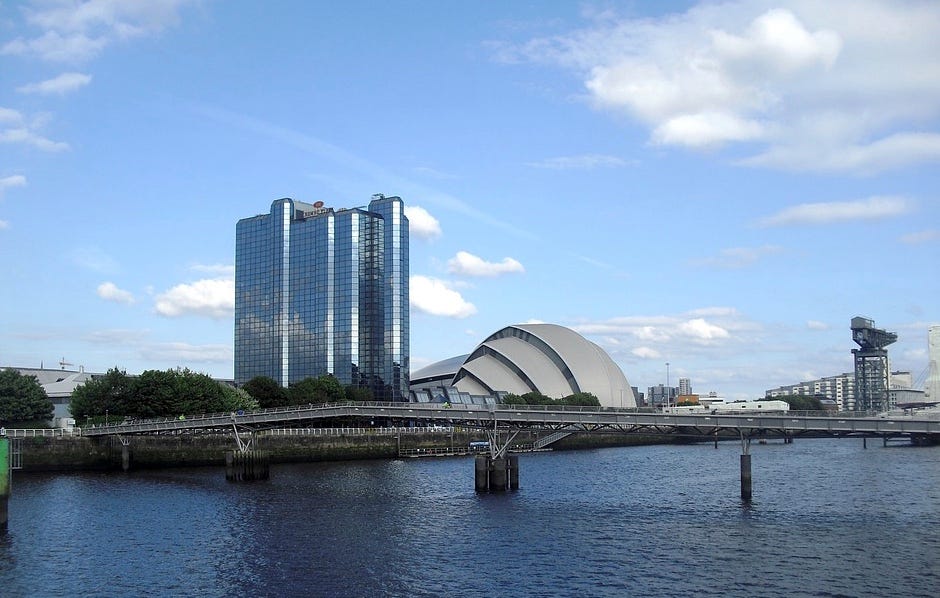ZEUS: Here is where the COP26 climate conference will succeed -- and fail
Pledging more money is the easy part. But expect international goalposts to be moved, and coal and carbon deals to remain elusive.
(David Callaway is founder and Editor-in-Chief of Callaway Climate Insights. He is the former president of the World Editors Forum, Editor-in-Chief of USA Today and MarketWatch, and CEO of TheStreet Inc.)
NEW YORK (Callaway Climate Insights) — Billed as the last best chance to save the Earth from global warming in coming years, next month’s United Nations summit will bring political drama, protests, new national promises, and inevitably, disappointment to Glasgow, Scotland, in a rain-soaked, Covid-threatened carnival of climate chaos.
Expectations are running high for an international deal to extinguish coal, a U.S. infrastructure plan, a renewal of climate pledges, a carbon-pricing strategy, an international agreement to cut methane emissions, and above all else, a commitment of $100 billion from the wealthiest, dirtiest nations of the world to support poorer nations as they transition to renewable energy in the next decade to escape disaster.
Whenever you bring together global leaders, their handlers, their security, the media, business executives, police, and protesters, you’re guaranteed more show than substance. COP26 will be no different. In fact, with both Pope Francis and Queen Elizabeth planning to appear, and drastic Covid-testing restrictions on up to 20,000 attendees, it’s possible this will be the last of the era of summit spectaculars. Leaders and dealmakers will likely find it’s easier in the future to make progress in quieter, more sober settings. That said, I do expect plenty of deals and announcements.
First off, the wealthy nations will find — and announce — a path to $100 billion in financial support for smaller, poorer countries. Reports say they are 80% of the way there and, to be honest, this is low-hanging fruit. Whether they actually come up with the money in coming years remains to be seen, but they will announce the deal.
A coal deal seems unrealistic. We’ll see some form of commitment to reduce coal, but with leaders from Australia and South Africa not coming to Glasgow, and a potential snub coming from China and maybe Russia, it’s hard to see a grand deal for all these coal-producers to jump on board.
On carbon markets, I actually think this is one area where we will see progress. A global deal to create efficient carbon-trading systems, up to and including putting a price on carbon emissions, has been elusive for two of the last COP meetings, in Spain and in Poland. But individual markets have come a long way. Europe is leading the pack with its Emissions Trading System (ETS) and the UK is building its carbon market as well. So is China, and in the U.S., the Biden Administration is suddenly considering a carbon tax after initially rejecting the idea.
I don’t think we’ll see any huge, global arm-locking on carbon pricing, but I do think negotiators need a win here. So we’ll likely see a high-level working group of financial regulators, central banks, and academics appointed with a specific time-target this decade — perhaps for COP27 — of negotiating a trade deal.
Similarly, I think we’ll see a methane reduction deal come out of Glasgow. Many countries have already made progress on this. This could even be the one where the Chinese step up, surprising the event, as China is wont to do.
I imagine we’ll be inundated with new corporate pledges, both financial and in terms of cooperation, with climate risk reporting high on the agenda. But by far, the elephant in the room at Glasgow’s Scottish Event Centre will be the updates of each country’s “nationally determined contributions,” which are their commitments to reduce carbon emissions to limit the rise in global average temperatures to no more than 1.5°C. above pre-industrial levels.
The Paris Agreement of 2015 was a landmark deal in climate and in the history of the COP summits, dating back 26 years now to 1995. But six years on, few nations have achieved their targets, and some are well behind. A recent UN analysis said that even if existing commitments are met, the earth is still on track to see an average temperature gain of more than 2.7°C. above pre-industrial levels by the end of the century.
In other words, 1.5°C. is a dream. The goalposts will need to be moved, likely to the 1.7°C. to 2.2°C. range, from what we’re hearing. I think we’ll see negotiators favor a lower target in that range, still under 2°C., simply to keep the pressure on. But in terms of mitigation of climate change, this is a severe step back from Paris.
Along the way, our news feeds will be full of political disses, colorful protests, a televised shaming of leaders by Greta Thunberg, daily Covid updates, and all of the hyperventilated press conferences and photo ops an event of this magnitude requires.
When it’s over, the energy crises in China and Europe and India will still be there, and we’ll all have a generally frustrated feeling about what more could have been done. But in truth, just having the conference is a victory of sorts. A decade from now, under a new generation of leaders, we’ll be glad we did.


